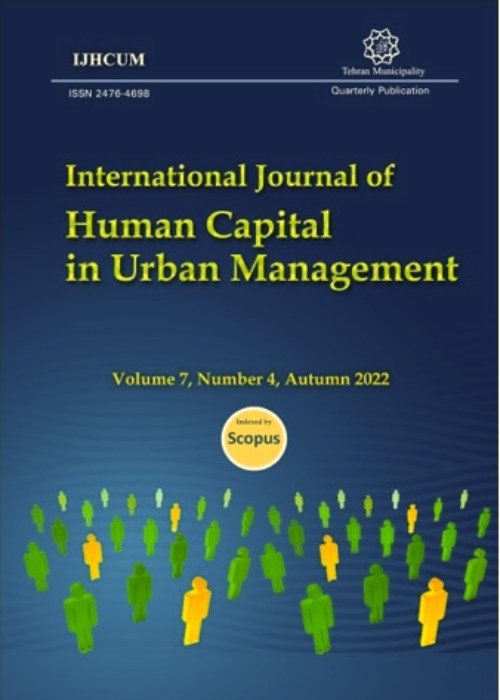The relationship between financial and non-financial measures, organizational justice, and employee satisfaction
Author(s):
Article Type:
Research/Original Article (دارای رتبه معتبر)
Abstract:
BACKGROUND AND OBJECTIVES
Today, human resources play a key role in the success of organizations and leading organizations have creative, motivated and capable employees. In addition to the characteristics of the employees, the measures and practices related to strategic human resources management planned and implemented by organizations are effective mechanisms to attract employees who believe in their abilities and create energy and motivation in the Khuzestan Regional Water Organization, like any other organization. Also, it requires the deployment of the strategic human resources management capacity and its subsystems to improve the perceived organizational fairness of employees in order to improve work behavior and employee satisfaction, which the present study has dedicated to this important topic. The aim of the study is therefore to examine the relationship between performance appraisal measures and employee satisfaction and to investigate the mediating role of procedural and distributive justice in the relationship. METHODS
The research population were employees of the Khuzestan Regional Water Organization. The sample size was selected based on Morgan's table as 297 people. Data were collected using simple random sampling method. Data were analyzed by descriptive and inferential statistics using SPSS25 and AMOS24 software.FINDINGS
Based on the quantitative data analysis, the results of testing the research hypotheses show that financial measures are significantly related to procedural fairness (C.R.= 6.009) and distributive fairness (C.R.= 5.748), non-financial measures are significantly related to procedural fairness (C.R. = 3.643) and Distributive Justice (C.R.= 5.196). Financial metrics have a significant correlation with employee satisfaction (C.R.= 4,080), non-financial metrics have a significant correlation with employee satisfaction (C.R.= 2,569). Procedural fairness has a significant association with employee satisfaction (C.R.= 2.786), distributive fairness has a significant association with employee satisfaction (C.R.= 2.084). Procedural and distributive justice play a partially mediating role in the relationship between financial and non-financial measures and employee satisfaction.CONCLUSION
The results showed that the use of the comprehensive performance evaluation system is effective on organizational justice and the result will lead to the improvement of the job satisfaction of the employees and the results of this research can be used and generalized in governmental organizations and public non-governmental organizations that have almost the same organizational structure. The use of non-financial measures is suggested to evaluate employee performance, in addition to using traditional financial objective measures to evaluate performance.Keywords:
Language:
English
Published:
International Journal of Human Capital in Urban Management, Volume:8 Issue: 3, Summer 2023
Pages:
403 to 418
magiran.com/p2570921
دانلود و مطالعه متن این مقاله با یکی از روشهای زیر امکان پذیر است:
اشتراک شخصی
با عضویت و پرداخت آنلاین حق اشتراک یکساله به مبلغ 1,390,000ريال میتوانید 70 عنوان مطلب دانلود کنید!
اشتراک سازمانی
به کتابخانه دانشگاه یا محل کار خود پیشنهاد کنید تا اشتراک سازمانی این پایگاه را برای دسترسی نامحدود همه کاربران به متن مطالب تهیه نمایند!
توجه!
- حق عضویت دریافتی صرف حمایت از نشریات عضو و نگهداری، تکمیل و توسعه مگیران میشود.
- پرداخت حق اشتراک و دانلود مقالات اجازه بازنشر آن در سایر رسانههای چاپی و دیجیتال را به کاربر نمیدهد.
In order to view content subscription is required
Personal subscription
Subscribe magiran.com for 70 € euros via PayPal and download 70 articles during a year.
Organization subscription
Please contact us to subscribe your university or library for unlimited access!



